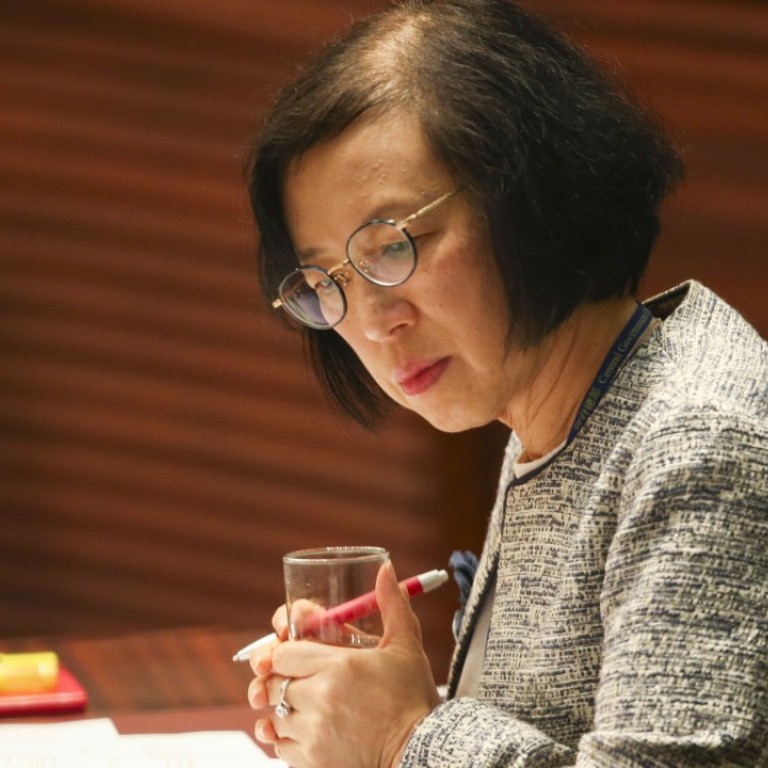
Medical watchdog reform bill passes Hong Kong Legco after years of setbacks, in move to expand council and regain public trust
Medical Council will be expanded to 32 members from the current 28, but lawmakers from across the political spectrum said more improvements should be made
A much-delayed bill that seeks to reform the watchdog that polices Hong Kong’s 14,000 doctors was finally passed at the Legislative Council on Wednesday in a move that seeks to restore public trust in the body.
The ratio of appointed and elected members in the council was at the centre of the debate two years ago, with professionals expressing fears that too many government appointees would undermine the professional autonomy of the independent body that disciplines doctors.
Hong Kong lawmakers must feel pressure on Medical Council reform bill
The council had been criticised for operating as a closed shop and taking too long to process complaints. It receives more than 500 complaints a year and takes around six years to hold a hearing after receipt of a complaint.
“Currently the number of cases to be handled has reached 770. The amendment of the medical registration bill brooks no delay,” said the Secretary for Food and Health Professor Sophia Chan Siu-chee.
Former health minister Dr Ko Wing-man, said the bill not being passed in 2016 was one of his regrets from his five-year term, adding he was still concerned about the council reform despite leaving the government.
Hong Kong medical reform bill drags on Legislative Council backlog
“I hope the lawmakers would go easy in passing this bill so it can be enacted as soon as possible,” said Ko on Wednesday ahead of the vote.
Under the plan, four more lay members would be added to the existing four in the council – with three from patients’ groups and one from the Consumer Council. None of the four would be appointed by the chief executive, unlike in the rejected proposal.
The public hope to speed up the council’s progress in disciplinary inquiries and increase representatives of lay members in the council
Chan said on Wednesday that it is expected the three members from patients’ groups would be elected by the end of this year and start their duties in the council early next year.
In addition, the Academy of Medicine, the specialists’ training body, would receive two more elected seats, on top of its two existing appointed positions in the council. All fellows of the academy would be eligible to be elected for the two extra seats.
The length of the validity period for doctors with limited registration, meaning those trained overseas and did not take the council’s licensing examination before working in the public sector, has also been extended from not more than one year to not exceeding three years.
The government sees this as a short-term measure to attract more qualified overseas doctors and alleviate the manpower shortage in the public sector.
Despite the passage of the bill, lawmakers from across the political spectrum said more improvements should be made within the medical watchdog.
Lawmaker Tommy Cheung Yu-yan said the composition of members of the council is still tilted heavily towards doctors, as 24 out of 32 members in the proposed council are doctors.
“The public hope to speed up the council’s progress in disciplinary inquiries and increase representatives of lay members in the council,” said Cheung. “Therefore they would rather accept [the proposal] first without further dragging it.”
‘Tyranny of minority’: Hong Kong medical reform bill fails as filibuster blocks Legislative Council vote on final day
Medical sector lawmaker Dr Pierre Chan said he agreed the revised bill has improved, but questioned whether extending the validity period for doctors with limited registration could help solve the manpower problem in the public sector.
“This bill has its flaws and further attention is needed,” said Chan.
Lawmaker Leung Yiu-chung from the Neighbourhood and Workers Service Centre said there should be an independent body to assist the council in handling complaints.
He said in the future there should also be a further increase in the number of lay members to enhance the council’s credibility.
“The general public, especially patients’ groups, feel the proportion of lay members is still relatively low [under the proposal],” said Leung.
Hong Kong Patients’ Voices welcomed the passage of the bill, saying: “We believe the amendment can solve the problem of severe delay for the council in handling complaints.”


